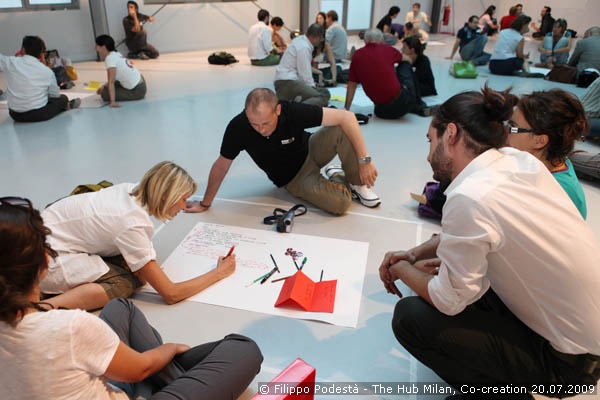
So you are not exactly a nine-to-five, safely employed, 2.3 children type. Maybe you are trying to do your bit for this lovely blue planet and its slightly dysfunctional dominant species; maybe you are following your own need to express yourself through art, or some other creative channel; maybe you are trying to build businesses that will do good, rather than just make money; maybe you are just exploring your own life hacks. Either way, you live on the edge of society – like most of us on Edgeryders. Will welfare be around for you when you need it? Most of us are very. Damn. Sceptical.
States and the private sector are struggling to provide everyone with high-quality, affordable health and social care. For now, the most likely outcome is a dual society, with insiders having access to 20th century-style welfare and an ever-growing precariat left to provide for itself. The welfare put in place by previous generations is failing. Time to learn how to make our own.
LOTE5 is the perfect place to explore the issue. We do so through a workshop called Let’s co-create our own welfare: how to design collaborative care services. The basic question we explore: can communities build sustainable, adequate care services for their own members? How can we take care of each other in a way that is resilient to systemic crises, political fads, budget cuts and so on? Consistently with LOTE ethos, we take a “no spectators” approach and treat everyone who decides to attend as a designer. The workshop is led by Ezio Manzini, one of the world’s most prominent experts in design for social innovation. Participation is free, but registration is required. To register, follow these steps.
In the next weeks, we shall be zeroing in on some service that we can work on as an example of the “care by communities approach”. One idea is to look at services for refugees. Here in Belgium (and, I suspect, elsewhere too) refugees are processed by government bureaucracies in an “old industrial” way: people are treated like a flow of some raw material, and funneled into a production line. From anecdotal evidence we are collecting, it seems such production line is bureaucracy at its worst; different steps must be done in sequence and not in parallel; “hurry and wait” dominates; refugees sit through interviews in which they are never asked what they can do, how can they contribute to the host society; they can be vouched for by social workers who have never seen them before, but not by the Belgian people they live in the homes of, etcetera.
This seems like a major fail. But we refuse to design a service for refugees without the participation of refugees as designers, even as an exercise. If you are interested in this problem and can bring first-hand experience, get in touch, and we’ll see what we can do together.